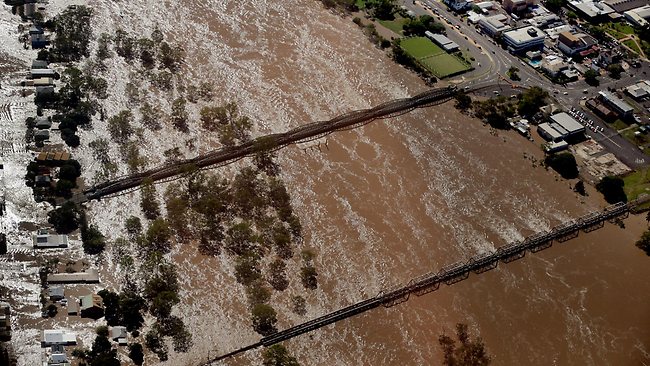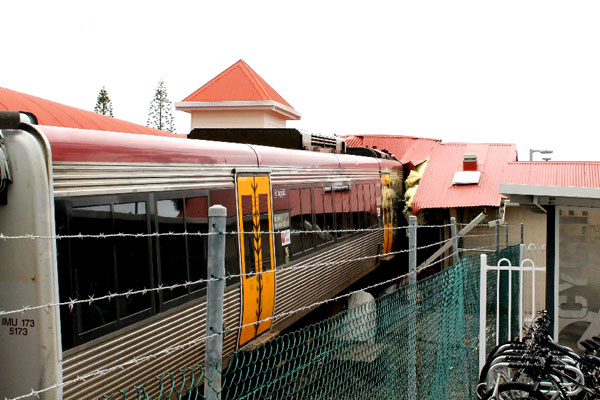How Fairfax Brisbane handled the flood crisis

As News Director, I’ve always anticipated to “expect the unexpected” – But during the week of the 2013 flood crisis, it was more than what could be anticipated.
It was Friday morning. 4BC’s Content Director Anthony Frangi and I met to discuss and plan coverage of the upcoming weather event, but the information given to us suggested that Ex-cyclone Oswald would only deliver heavy rain and the potential for flash flooding across parts of Brisbane on the Saturday night into Sunday morning. We planned accordingly. It wasn’t until the system stalled over Bundaberg causing tornadoes and major flooding, that we realised things were going to get dramatically worse.
After consultation with my weekend news staff, I called-in additional staff to help on the Sunday, as the system moved ever so slowly south, dumping much more than expected rain across Brisbane. More staff were needed to handle the incoming calls from listeners, as well as assist in gathering content. As a networked news service, we needed to cover the developing story in Brisbane as well as Bundaberg.
 Then, late Sunday afternoon, the Queensland Premier announced, Brisbane was going to flood again. On Sunday night, I activated additional staff to assist us. Our Canberra Bureau Correspondent Michael Pachi flew to Brisbane to assist with the coverage. It was one of those cases where it’s “All hands on deck”. Staff who were on leave were called-in to assist. Even our General Manager David McDonald rolled-up his sleeves and worked across the weekend to assist.
Then, late Sunday afternoon, the Queensland Premier announced, Brisbane was going to flood again. On Sunday night, I activated additional staff to assist us. Our Canberra Bureau Correspondent Michael Pachi flew to Brisbane to assist with the coverage. It was one of those cases where it’s “All hands on deck”. Staff who were on leave were called-in to assist. Even our General Manager David McDonald rolled-up his sleeves and worked across the weekend to assist.
Our newsroom nearly doubled in size but the increased staffing level was a requirement to ensure we got correct and timely information broadcast. Even when some members were cut-off, they still called-in to the station with the latest flooding report from their own local area.
During the crisis, the roster was re-written with new assignments being distributed in a co-ordinated plan for the next broadcast day.
We needed additional staff to answer calls from listeners, to attend press conferences, to process audio as it aired on 4BC and chase “the heartland” story of affected locals who operate butchers, newsagencies, pubs etc. But on top of that, as a networked news service, there was the added need to cover the devastation of Bundaberg and Rockhampton. After the flood event from two years ago, it was noted many locals don’t talk to the media anymore. This led us to be disadvantaged because there were few stories explaining the human element of the flood. 
The weather crisis continued for the next three days. My mind was also aware that after the initial disaster, recovery and clean-up would need to be stories we chased. Then, Brisbane’s water treatment facility shut-down causing a water shortage crisis. As staff were being redeployed, a suburban train crashed at Cleveland Railway station injuring 10 people.
No doubt, so many news stories in the one week pushed my news team to the limit – but with all good news teams, the 4BC News staff, together with the programming crew on 4BC and 4BH, rose to the occassion. I didn’t have to ask, as the goodwill of all staff who worked additional hours to ensure the much-needed information was gathered and broadcast. It’s one thing to have a great co-ordinated plan, but it’s the backing of the team that can make or break the coverage. As sad as the devastation became, I was proud of my newsteam who voluntarily went “above and beyond” during the crisis.
As unfortunate as this crisis was, it’s not the first time I’ve had to plan a strategy for an emergency broadcast.


